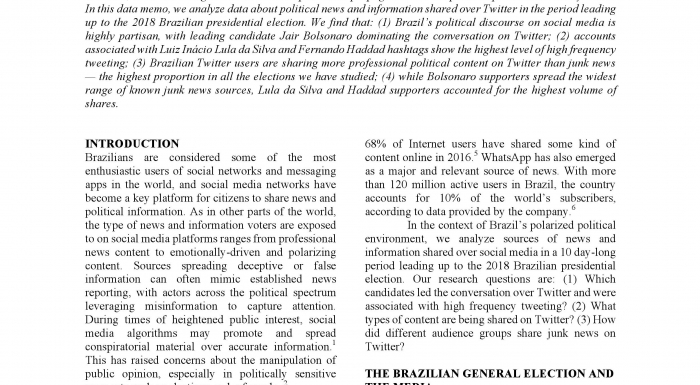Press: A growing number of governments are spreading disinformation online
post,
13 January 2021

In Brazil, there are rising concerns over computational propaganda and the political polarization it may cause. In this data memo, we analyze data about political news and information shared over Twitter in the period leading up to the 2018 Brazilian presidential election. We find that: (1) Brazil’s political discourse on social media is highly partisan, with leading candidate Jair Bolsonaro dominating the conversation on Twitter; (2) accounts associated with Luiz Inácio Lula da Silva and Fernando Haddad hashtags show the highest level of high frequency tweeting; (3) Brazilian Twitter users are sharing more professional political content on Twitter than junk news — the highest proportion in all the elections we have studied; (4) while Bolsonaro supporters spread the widest range of known junk news sources, Lula da Silva and Haddad supporters accounted for the highest volume of shares.
Acesse o documento aqui (português).
Download the online methods supplement.
Caio Machado, Beatriz Kira, Gustavo Hirsch, Nahema Marchal, Bence Kollanyi, Philip N. Howard, Thomas Lederer, and Vlad Barash. “News and Political Information Consumption in Brazil: Mapping the First Round of the 2018 Brazilian Presidential Election on Twitter.” Data Memo 2018.4. Oxford, UK: Project on Computational Propaganda. demtech.oii.ox.ac.uk
post,
13 January 2021
research,
1 November 2018
research,
19 October 2018
post,
8 October 2018